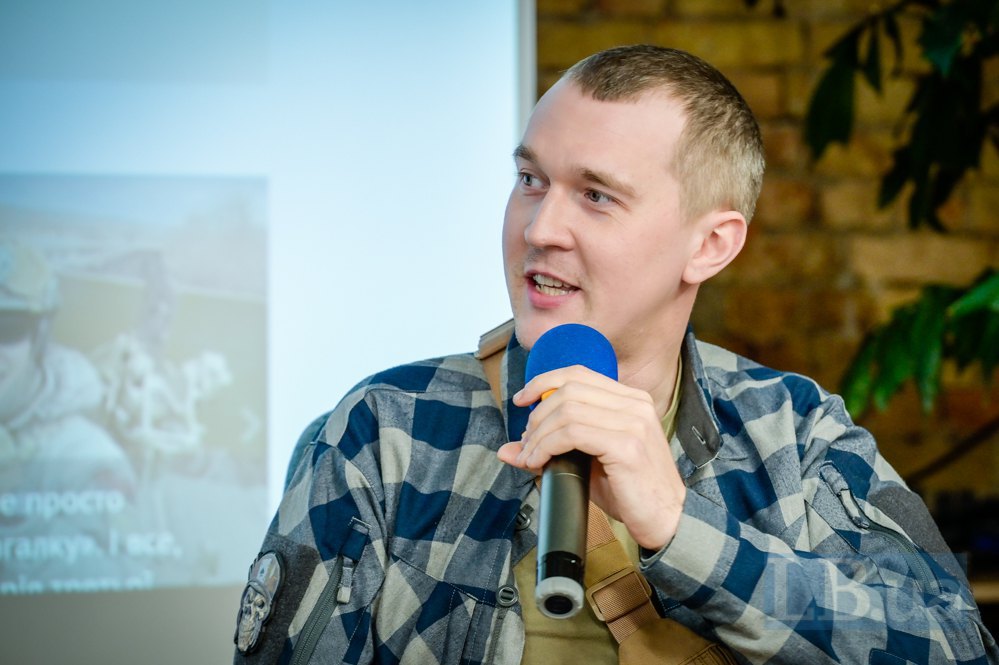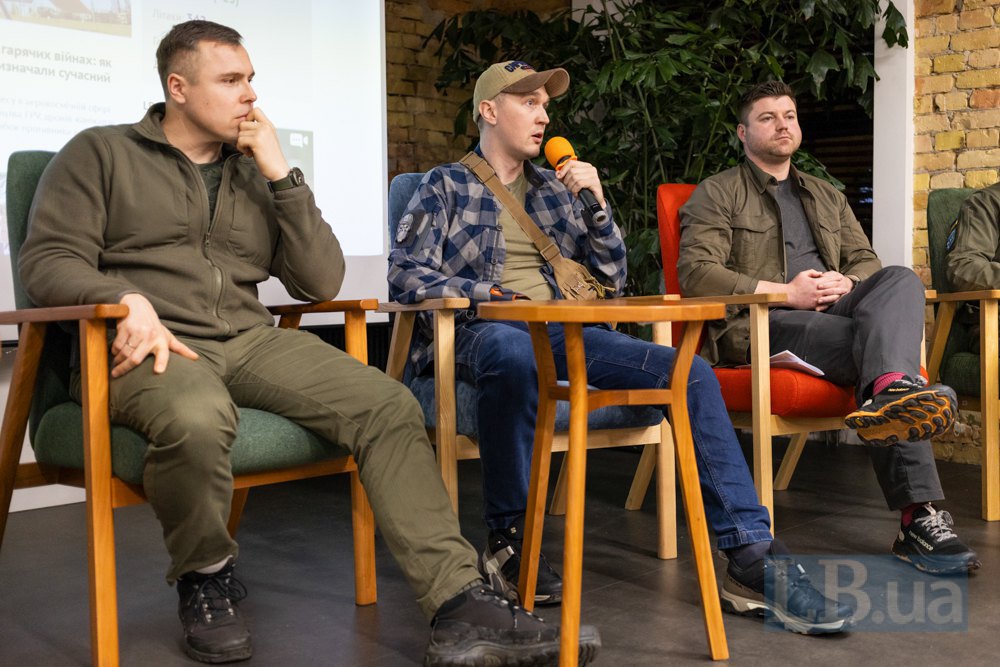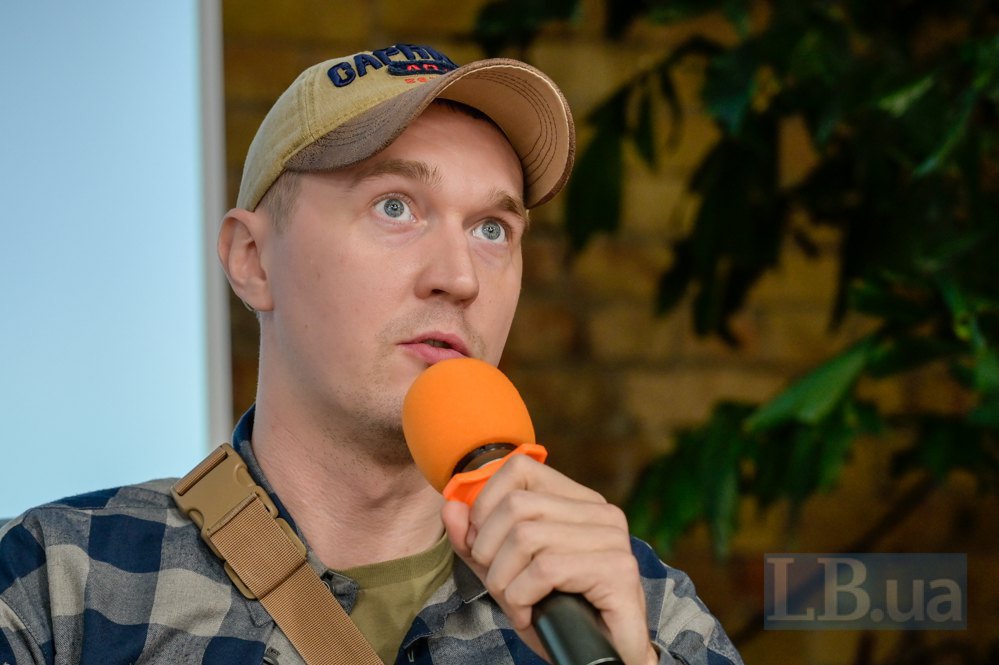
According to Hudymenko, Ukraine now has an opportunity to restart its state policy on veterans. The vast majority of current servicemen and women are unaware of the benefits offered to veterans by the state today, he says.
"I conducted an experiment. I made 10 calls to people from different brigades who were not in the ATO. This is important. Because those people knew, more or less, what benefits and services the state should provide. And those who joined [the Armed Forces] in March-April 2022 have "awesome" results. 7 out of 10 say they don't know, but they think they should have free public transport travel. Some people, on the contrary, are starting to imagine that they should be given an apartment or allowed to bring a car without a fee (the latter was discussed at the legislative level but not implemented). That is, people already have myths in their heads. And these myths need to be eliminated ," the soldier believes.
This happened, he says, because of the complete lack of communication from the Ministry of Veterans Affairs under Yuliya Laputina - "people believe in nonsense".
"That he will be given an apartment for sure. That he will definitely get two hectares. Some other nonsense. Because there was zero communication under Laputina. And Oleksandr [Oleksandr Porkhun - acting Minister of Veterans Affairs] definitely deserves respect. He started communicating with people - from the veterans themselves and representatives of the veteran community to the families of the deceased," the soldier said.
During the discussion, Hudymenko called for the abolition of benefits for veterans.
"We don't need these benefits now. And, most likely, we cannot count on them, because there is a hole in the budget that not even a conditional iceberg, the Titanic, can sail through. And the number of soldiers, both wounded and dead, is growing every day because the mobilisation continues, and no one can say how long it will last. All the numbers are now pulled out of the air. Maybe we'll have three million veterans, maybe five, or maybe it will stop at one and a half. Nobody knows," he says.
According to Yuriy Hudymenko, veterans' policy is "the most irrational thing that can exist in a state" because we are not only talking about paying tribute to veterans, but also about understanding how to "measure" it.
"Do you have a respect-meter? Do you have a honour-meter? We say that veterans' policy is important for mobilising the next generations, for mobilising tomorrow, the day after tomorrow. This is so that people who receive summons don't say: "Oh, my God, don't we know how the state treats those who have served? We will never go there!". And they didn't cross the imaginary Tysa river. And they would not be interested in the fact that the mortality rate in the Tysa river is probably higher than in most areas [of the frontline], because it is an irrational thing. And when we talk about cemeteries, memorials, awards, all the things that cannot be counted adequately, we are talking about the irrational.
So we have to talk not only about numbers. We also need to talk about morality. This word is not very common nowadays, but we have to talk about morality, about values. The attitude towards veterans, which dates back to Soviet times, has led to the fact that society does not need a veteran. Society needs a picture of a veteran. A picture has a huge advantage - it does not speak. And if this portrait has a black ribbon at the bottom, then okay, it's much better than when a veteran starts expressing his opinion. Society doesn't want to hear his opinion because it believes that only a soldier on the frontline is useful to it now, and a veteran is not. This is, in fact, my idea. And I will insist that respect, honour, values are actually the biggest challenge today.
We will make budgets, we will resolve the issue of benefits, with or without monetisation. But this, which cannot be measured, is, in my opinion, many times more important," Hudymenko emphasises.

In his opinion, while work on the format of demobilisation is underway, the state has a chance to build a proper veteran policy and a new social contract. Otherwise, it will be formed on its own - on the streets and with violence, the soldier believes.
"If tomorrow, let's say, a draft law on mobilisation is adopted or otherwise states that 36 months is the limit [of service in the Armed Forces, after which one can be demobilised], it will mean that a huge number of people will return from the frontline at the same time in a year.
These will be people for whom the word "leftist" means not only a person of leftist views, but also an "unaccounted" in arms. And if you think that many of the military will not take some kind of trophy with them, you are sorely mistaken. We are going to talk about the fact that a huge number of people will try to solve issues with violence. Let's be honest: how many veterans do not know and have not experienced what an outburst of anger is after the war or even during the war?" says Hudymenko.
"There will be a social contract, and it will be built either by goodwill - and it will be okay for the state: veterans will take the place they are supposed to take. Or this social contract will be formed in a very unpleasant way, with a huge level of violence on the streets, with a dirty political game, because a million veterans are the No. 1 protest electorate in any country. And everyone will try to take advantage of this," Hudymenko said.
He suggested recalling the years 2016-2018, when veterans began to unite and could resolve a conflict with a conventional bus driver who refused to transport a combatant for free.
"Scale it up to a completely different number of people. To a completely different number of weapons. For a completely different war.
...Our veterans will either be all the things we have listed today, or they will be average members of society. They will establish businesses, be employees, create added value. Or they will be people who have defended the state, returned and are destroying this state. They are destroying it from within," Hudymenko said.
According to the serviceman, people who return from the war should be socialised so that they do not identify themselves primarily as veterans.
"Everyone has self-identification. If I ask you who you are, you will say, for example, I am a mother, I am a Ukrainian, a businessman, an entrepreneur, a journalist, a fan of Dynamo Kyiv football club. So there is a certain gradation of this self-identification. You say something first, something last. Accordingly, when I was being treated in America after being wounded, local veterans told me that they were once told directly that the task was to keep the fact that you were a war veteran out of the forefront of your mind. To forget that you are a veteran as much as possible. This is an indicator of socialisation.
Let's take that minibus as an example. You go to work in a minibus - you have to show your combatant's ID card. Twice a day, they mention that you are a veteran. If you have any other privilege - you can't go to the car park without the combat veteran's ID, you are reminded again that you are a veteran. 10, 15, 20 years after you were demobilised, you still identify yourself not as an entrepreneur in the first place, not as a father, not as a founder of something, but as a veteran. You remind yourself of that. That's why one of the most important parts of the policy should be to socialise people to the point where they start to forget about it," Hudymenko emphasises.
Currently, he believes, the state has an opportunity to work out the principles of veterans' policy and prepare for it, while the number of people who were demobilised with severe injuries that prevent them from continuing their service or for other reasons. Because when hundreds of thousands of people return, it will be much harder to do anything.

"All the negative scenarios I have listed today will happen. There will be veteran alcoholism. There will be veteran drug addiction. There will be veteran suicide. Veterans will definitely be involved in crime. This is a fact. This is true in every country in the world. The question is the scale. Will it be 1% of veterans, or will it be approximately 50%.
We are now in a position where things can be either much worse than they are today or much better. But things cannot go on like they are today for long. Therefore, there is still a chance, a hope that things will be much better," Yuriy Hudymenko positively concluded.
More materials from the discussion:
- Masi Nayem: "Often [state aid to veterans] looks like a shame, not help"
- Serhiy Poznyak: "We will have 300,000 veteran entrepreneurs. It would be a sin not to use this human capital."
- Ihor Liski: "There will be no effective mobilisation without a proper veteran policy”








